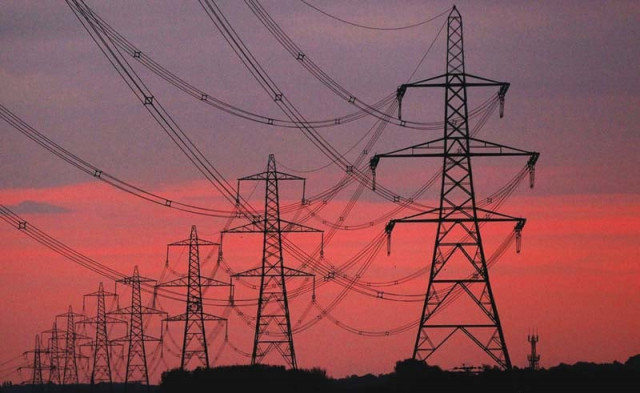China not to intervene in K-Electric deal: official
Says it’s purely commercial decision of Shanghai Electric

“Whether the K-Electric deal succeeds or not, it will be purely a commercial decision of the Shanghai Electric and the government will not step in to influence the [outcome of the] deal,” said Miss Jin, the head of Division for Overseas Investment Contracts of the Shanghai Municipal Commission of Commerce.
K-Electric, consumer groups both unhappy with new tariff
She was responding to a question about initial setbacks to Shanghai Electric Power’s bid for the acquisition of 66.4 per cent stakes in K-Electric – the only integrated company in Pakistan’s power sector. The discussion took place when journalists from four South Asian nations visited the headquarters of the Shanghai Municipal Development and Reform Commission.
Wang Si Zhang of the Council of Shanghai Municipal Development and Reform Commission led the Chinese side. The visit was aimed at knowing about the Chinese companies working on ‘one belt one road’ (OBOR) initiative launched by the Chinese president. The China-Pakistan Economic Corridor (CPEC) is the pilot project of the OBOR.
Miss Jin maintained that unless the Shanghai Electric was treated in an unfair manner, Chinese authorities would not intervene. So far, the Shanghai Electric has not spoken to the Chinese authorities about bottlenecks in the K-Electric deal, she added.
K-Electric: Govt, not consumers, to benefit from tariff cut
Last year, the Abraaj Group had sold KES Power – the offshore entity that controls 66.4 per cent of total K-Electric shares – to the China-based Shanghai Power. The deal is estimated at $1.77 billion and contingent upon settlement of issues between the government and the seller. Pakistan has not yet given the requisite regulatory approvals to conclude the deal.
After Abraaj Group could not timely conclude the deal, it sought an extension from the buyer as well as the regulator. The seller and the buyer had agreed to conclude the deal by March 17 of this year – a deadline that has been missed due to disagreement between the Abraaj Group and federal authorities over payments of arrears, according to the Ministry of Water and Power officials.
The March 31 deadline given by the Securities and Exchange Commission of Pakistan (SECP) for concluding the deal has also lapsed.
“On the request of Manager to the offer, extension of 90 days for making public offer has been granted … Now public offer in the matter may be made till June 30,” said Bilal Rasul, the spokesperson for the SECP.
The delay occurred because of the failure to settle the financial dispute between Pakistani authorities and the Abraaj Group, resulting in withholding of a National Security Clearance Certificate to the Shanghai Electric.
The amount in question was $1.24 billion, which the K-Electric owed to two government entities, said officials of the ministry of water and power and Sui Southern Gas Company.
In 2016, Shanghai-based companies signed $11.8 billion contracts under OBOR strategic initiative of China, according to Shanghai Development and Reform Commission officials. Four South Asian nations, Pakistan, India, Bangladesh and Sri Lanka counted almost half of the total contract value.
The Shanghai Electric Group is among influential companies that are contributing in achieving the OBOR objectives. China’s Ministry of Commerce has acknowledged these contracts, underscoring the official support to Chinese companies for their investment in OBOR countries.
The K-Electric is the only electricity company in Pakistan that covers whole value chain of power sector and the Shanghai Group is very strong in all these areas, said Miss Jin. The Shanghai Electric Group is also involved in a Thar coal mining and power project, said head of division of Industries.
Abraaj Group unable to conclude deal on K-Electric
“The Shanghai Electric is trying to establish its overseas footprint and is very keen to invest in Pakistan’s market,” said Miss Jin. She said that this would also serve to develop the region’s social and economic development.
Commenting on the environmental impact of coal-fired power plants, the head of energy division said that the Shanghai-based companies were building super critical power plants and by the end of this year, these companies would achieve the goal of bringing the omission level to as low as the level of gas-fired power plants.
Chinese officials said that Shanghai-based companies were not yet involved in development of industrial parks in Pakistan. They said that these companies had so far been helping Pakistan develop its energy sector.



















COMMENTS
Comments are moderated and generally will be posted if they are on-topic and not abusive.
For more information, please see our Comments FAQ